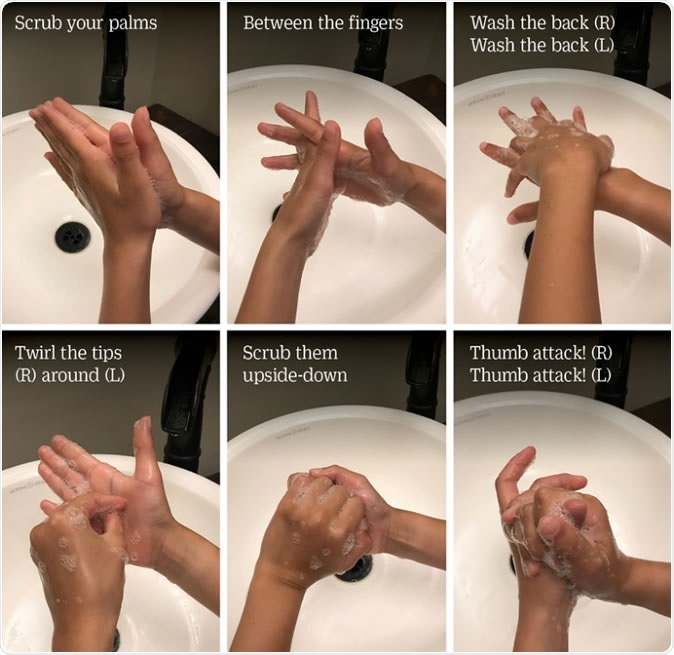And now it’s back to nursery rhymes as doctors resort to innovative ways to teach children how to wash their hands properly and curb the spread of infections. An article published in the BMJ describes this possibility using a common song.
The method is simple: the song lists several instructions, each of which is to be carried out before the next starts. This stepwise do-and-learn technique may ingrain the technique of proper handwashing into children by making it more engaging and easier to learn. It is already established that learning is easier when song lyrics are used in this manner to inculcate novel skills, rather than the instructions in plain prose. For instance, almost every child who learns the English alphabet does so with the help of the ABC song.

The six step technique for hand hygiene, as recommended by the World Health Organization, sung to the tune of Brother John (Frère Jacques) for song lyric self instruction in hand washing. Some steps involve doing one hand at a time. R=right L=left (Image Credit: N Thampi / BMJ)
The importance of handwashing
Poor handwashing is responsible for the spread of several infections, including stomach upsets, colds and coughs, among children. The WHO technique of handwashing involves six steps that will remove viruses and bacteria from the hands. However, it can be challenging to learn the order of these steps.
Prior research has shown that good handwashing practices at school are effective in helping reduce infections and increasing school attendance. However, nothing much is clear about how schools teach this practice.
Musical teaching deficit
The current study was an attempt to fill this gap in knowledge. The researchers looked at 15 videos available online to teach children about handwashing. Their aim was to identify the use of music in the form of a song to teach the six-step process. Some of these videos showed some steps using songs, but these segments were longer than 20-30 minutes, which is the duration optimum for this age group.
How to wash your hands using Brother John (Frère Jacques)! For teaching kids but great for everyone
Filling the gap
Failing to find the right kind of video, the researchers set out to create one themselves. The focus was on teaching the six recommended steps using a popular nursery rhyme melody called Brother John, or Frere Jacques, which would hopefully make it easy for the children to remember the words and thus the concepts.
The words of the song were made up in collaboration with preschool and primary school children to make sure they were appropriate for the level of understanding of these age groups, which make up the target audience.
The real-time test
Finally, the children were exposed to the new ‘nursery rhyme’ instructions. First, however, the researchers applied a fluorescent marking to the hands of the children in the audience. This could help them find out later on if handwashing had been done properly, by detecting residual fluorescence even after the hands had been washed.
The song lasts for about 20 seconds, is simple to learn and the instructions are accompanied by easy to follow demonstrations.
The results
The results showed that when the children heard the song in tandem with washing their hands with soapy water, the average amount of fluorescent marking on the hands of the children was significantly reduced. In other words, the children washed their hands more effectively when the instructions were conveyed via the musical mnemonic.
Implications
The authors recommend the use of this mnemonic to teach the WHO’s six steps of handwashing to children. If successful, this simple strategy could impact the spread of infections at school remarkably. Moreover, it could even prove to be useful in healthcare facilities, to encourage and train the staff and patients there in proper handwashing. However, this will require more study before this step can be advised.
The authors sum up: “With its catchy tune and clear, lyrical instructions, our technique offers the opportunity to develop hand hygiene muscle memory, self-correction, and public health gains among children.” They plan to take it to the classroom next, to see how acceptable this mnemonic is among the intended age group, and also to test if it can be taught by one child to another. Another area to be tested is long-term retention of the lyrics and the practice in the child’s memory.
Journal reference:
Thampi Nisha, Villeneuve Lekha N, Longtin Yves. Wash your hands, Brother John! BMJ 2019; 367 :l6050, https://www.bmj.com/content/367/bmj.l6050